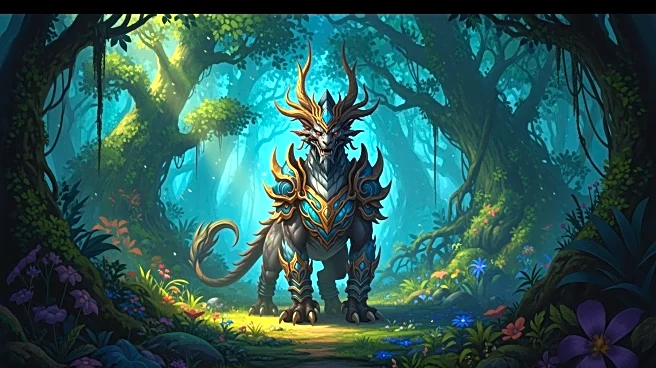What's Happening?
Capcom's latest release, Monster Hunter Wilds, is experiencing difficulties in maintaining its position among the company's top-selling games. Despite initial excitement and a strong launch, the game has
struggled with sales, particularly when compared to its predecessor, Monster Hunter Rise, and other Capcom titles like Devil May Cry 5. The game's performance issues, particularly optimization problems, have been a significant factor in its mixed reception on platforms like Steam. Capcom's recent financial report highlights these challenges, noting that Monster Hunter Wilds sold 637,000 units, placing it at the bottom of the company's top 10 list for the first half of the fiscal year.
Why It's Important?
The performance of Monster Hunter Wilds is crucial for Capcom as it reflects the company's ability to maintain its competitive edge in the gaming industry. The game's struggles highlight the importance of technical optimization and user experience in driving sales and maintaining player engagement. The mixed reception could impact Capcom's reputation and influence future sales strategies, particularly as the company aims to boost its fiscal year 2026 sales outlook. The situation underscores the challenges faced by game developers in balancing technical performance with player expectations, which can significantly affect a game's commercial success.
What's Next?
Capcom may need to address the optimization issues plaguing Monster Hunter Wilds to improve its market performance. A potential strategy could involve releasing updates or patches to enhance the game's technical aspects, thereby improving user reviews and sales. Additionally, Capcom might consider strategic marketing campaigns or collaborations to reignite interest in the game. The company could also focus on upcoming expansions or content updates to retain existing players and attract new ones. These efforts will be crucial in determining the game's long-term success and Capcom's ability to meet its sales targets.










